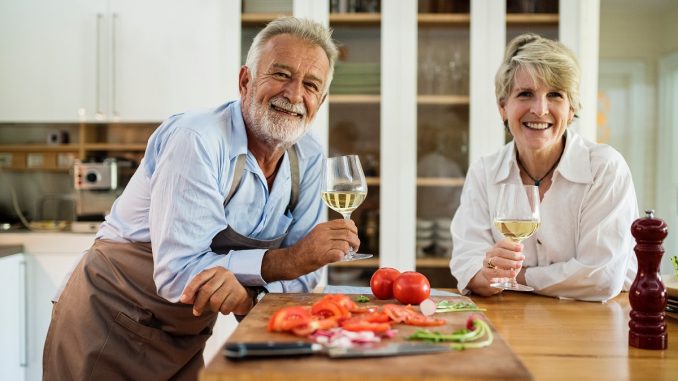
The kitchen is one of the busiest parts of one’s home, from cooking, cleaning dishes, storing food (and sometimes cleaning chemicals), and eating. However, it’s also one of the most hazardous places, with all the sharp tools, fire from stoves and ovens, liquids that may spill on the floor, and so on. But, for the elderly who have limited mobility, issues with vision and dexterity, and slower reflex, the risk of accidents and injuries in the kitchen is significantly increased, which is why extra steps should be undertaken in order to ensure their safety as they go about their activities in the kitchen.
That said, these safety tips are for homeowners, family members, and even contractors who are obligated to make a home’s kitchen a lot safer for the elderly at home:
Better Lighting
Accidents and injuries can occur due to poor lighting. For the elderly, especially those with impaired eyesight, lighting should be a priority. There needs to be quick access to the light switches in the kitchen. Ample lighting is key to their safety when entering the kitchen, cooking meals, and washing dishes — so there should be light over counter tops, stove tops, sinks, and the entrances. If you can, invest in voice or motion-activated lights.
Non-Slip, Even Flooring
Slipping and tripping are among the most common hazards in kitchens; the former is oftentimes can be caused by wet floors due to leaks and spills and/or slippery flooring materials, while the latter is commonly due to clutter, uneven flooring, and rugs. That said, you’ll want to consider having non-slip flooring, and also ensuring that your sink and plumbing is free of leaks. Although tiles are generally considered high-risk for slipping when walking barefoot or skid-free footwear, you can get non-slip floor tiles, however, you’ll want to have a tiler or contractor that uses floor tile levelling system so that the entire surface is even — this reduces the risk of tripping on or getting wounded by uneven tiles. Adding a non-slip mat/rug on the sink would also serve as an additional level of security from spills and slips.
Wider Doorways
For elderly who use walkers and other mobility tools, you’ll need to have wider doorways leading to and from the kitchen area to allow their mobility equipment to enter without any issues.
Senior-Friendly Shelves and Cabinets
Cabinets and shelves should be easily accessible for seniors, in such a way that they don’t need to tiptoe or stand on a step to reach an item. All the items they need should be on a level that prevents them from reaching up top, or crouching as either can caused muscle or joint pains, and other seniors may not even be able to lean over. Additionally, use a bar-type pull cabinet as they’re a lot easier for the elderly to operate.
Unbreakable Dinnerware
There’s always a chance that your aging loved ones may end up losing their grip when carrying or cleaning dinnerware. That said, it’s best to have unbreakable or plastic dinnerware in the kitchen to prevent injuries from broken glass and ceramics.
Smoke and Flame Detector

There’s a big chance that your kitchen already has a smoke detector. But when an elderly loved one resides in your house, you should regularly check the condition of the smoke and flame detector to ensure that it’s in working order. You can also try to invest in a smoke and fire alarm that can be linked to your smartphone, so you’d be alerted to any fire or smoke in your kitchen.
Conclusion
Many elderly people wish to age in place, in the comforts of their home, instead of a hospice or nursing home. However, this lack of supervision at home may also mean bigger or more frequent risks. So it’s important for one to make their home as safe as possible for seniors to allow them the freedom to perform daily tasks at home, specifically in the kitchen.
